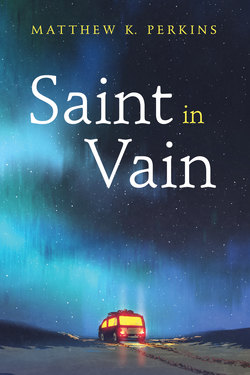Читать книгу Saint in Vain - Matthew K. Perkins - Страница 11
На сайте Литреса книга снята с продажи.
ОглавлениеSilvio Submission One:
There was a young man who was born into tragedy, and agriculture. For seven generations the Woodlief family had been plagued—not by drought or hail—but by lightning. They were struck in garden tractors and row crop tractors. They were struck when the cab was open and when it was closed. The first generation Woodlief patriarch was fifty-seven years old when his iron spade was struck mid-swing without so much as a cloud in the sky. Twelve years later his son’s push plow was hit, killing him instantly. When they finally found the horse that was pulling the plow, its tail was naught but a singed nub of hair. The young man’s great-great-great-grandfather was smote on his porch while drinking his morning coffee out of a tin mug. The following spring his great-great grandfather was just a young boy climbing a tree when the tree was hit, splitting it nearly in half. He survived that strike, but wasn’t so lucky when, twenty-one years later, he was killed by lightning as he lay irrigation pipe in a light rain storm.
By the time the young man became a young man he was the last of the Woodlief patriarchy. If a cloud in the sky had the slightest shade of gray, he could only be found cowered underneath the dining room table, where his hands covered his ears and he shivered. The fear alone was almost enough to kill him. In his mind’s eye he could see the lurking bolts ricochet from cloud to cloud, discharging and recoiling, just waiting for the opportunity to burn him into the earth. To return him to the dust from whence he came.
When thunderheads got close enough to speak to him, he groveled from below the table like a dog on the fourth of July. And when those flares from the lightning were within sight of the house, it burned onto his retinas the fallen faces of his ancestry. The only Woodlief family tree that mattered consisted of a forked bolt of lightning, and where that bolt met the soil of the earth was the gaunt portrait of our young man.
In his heart he knew that should God really want him dead, there were countless ways for him to do it, but this didn’t keep him from spending years of his adolescence hiding under the table. As he came into his early twenties he decided that his own cowardice was an affront to God’s order and to himself—if lightning would not strike at his ghastly figure from there, it was not because God was merciful toward him. His life was no life to live. His sisters encouraged him to stay under the table until he could reinvigorate the family name, but he refused to take any agency from the divine. If God wanted to end the line, then end the line he would. God was God, and our young man was still only a young man.
And so, the next time a thundercloud cleared its throat and the brilliant spider webs of electricity moved into the acres of the farm, he could be found in the middle of a field—a metal pipe fixed to his back like the sashimono of feudal samurai. He stood there that night, unharmed, until the sky went back to sleep, and then so did he.
To do something once can be the effect of temptation, but by this ritual he no longer envisioned himself tempting fate, but embracing it. The next storm that came through, and the dozen after that, were all met by the young man and his metal rod. His sisters begged him to stop mocking the sky—to stop tempting the tragedy that ran like iron through the blood in their veins. But he didn’t listen. Surely if God didn’t want him to be struck by lightning, then he wouldn’t be struck. Each time he marched onto the field under a shaded sky, he didn’t do so as a heretic, and he didn’t do so with fear or defiance—only with the certainty that the outcome was exactly as it should be.
He and his sashimono survived thirteen storms with that attitude. Thirteen. On the morning after the fourteenth his sisters found his torched, crumpled body. Seared onto his shirt was the exact shape of the bolt as it coursed through his figure, and onto his face the countenance of a perplexed buffoon.
